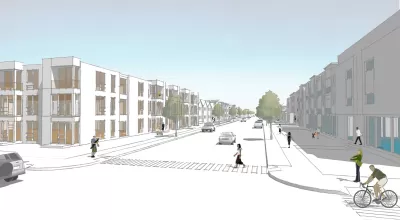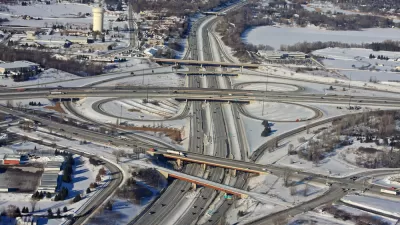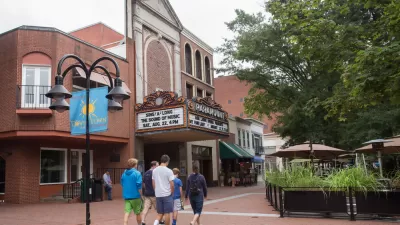The same judge that blocked implementation of the landmark Minneapolis 2040 Comprehensive Plan in June 2022 has allowed a temporary reprieve for planning work in the city to proceed.

“Minneapolis officials announced Tuesday that they will resume work on development projects that had been postponed after a judge tossed the 2040 Comprehensive Plan that guides development in the city,” reports Liz Navratil for the Star Tribune.
In June, Hennepin County Judge Joseph Klein halted implementation of the Minneapolis 2040 Comprehensive Plan, ruling that the city had failed to address environmental concerns raised by the court. The Minneapolis 2040 Comprehensive Plan famously was the one of the first citywide plans to entirely prohibit single-family zoning—for largely environmental reasons due to the emissions and land consumption effects of sprawling development resulting from exclusionary zoning.
“Klein wrote in a six-page order that he sought to weigh environmental concerns brought by local activists against the city's arguments that blocking it from enforcing the plan would cause a cascade of logistical and legal problems,” explains Navratil of the latest twist in the evolving saga.
Interim City Attorney Peter Ginder is quoted in the article saying Klein’s latest ruling would allow the city to move forward with building permits, rezonings, and other matters covered by Minneapolis 2040.
The article also provides detail about when to expect a final decision about the plan, and more on the legal controversy surrounding the landmark comp plan.
FULL STORY: Minneapolis can enforce 2040 Plan — for now

Manufactured Crisis: Losing the Nation’s Largest Source of Unsubsidized Affordable Housing
Manufactured housing communities have long been an affordable housing option for millions of people living in the U.S., but that affordability is disappearing rapidly. How did we get here?

Americans May Be Stuck — But Why?
Americans are moving a lot less than they once did, and that is a problem. While Yoni Applebaum, in his highly-publicized article Stuck, gets the reasons badly wrong, it's still important to ask: why are we moving so much less than before?

Research Shows More Roads = More Driving
A national study shows, once again, that increasing road supply induces additional vehicle travel, particularly over the long run.

Judge Halts Enforcement of Anti-Homeless Laws in Grants Pass
The Oregon city will be barred from enforcing two ordinances that prosecute unhoused residents until it increases capacity and accessibility at designated camping sites.

Advancing Sustainability in Los Angeles County Schools
The Los Angeles County Office of Education’s Green Schools Symposium brings together educators, students, and experts to advance sustainability in schools through innovative design, climate resilience strategies, and collaborative learning.

Using Old Oil and Gas Wells for Green Energy Storage
Penn State researchers have found that repurposing abandoned oil and gas wells for geothermal-assisted compressed-air energy storage can boost efficiency, reduce environmental risks, and support clean energy and job transitions.
Urban Design for Planners 1: Software Tools
This six-course series explores essential urban design concepts using open source software and equips planners with the tools they need to participate fully in the urban design process.
Planning for Universal Design
Learn the tools for implementing Universal Design in planning regulations.
City of Moreno Valley
Institute for Housing and Urban Development Studies (IHS)
City of Grandview
Harvard GSD Executive Education
NYU Wagner Graduate School of Public Service
City of Cambridge, Maryland
Newport County Development Council: Connect Greater Newport





























